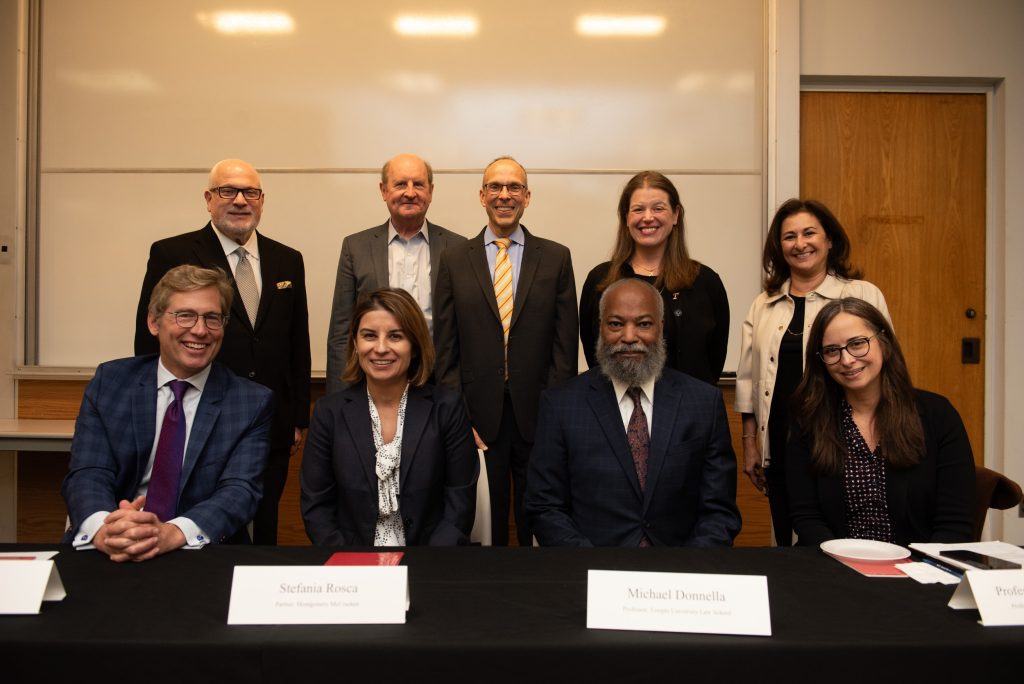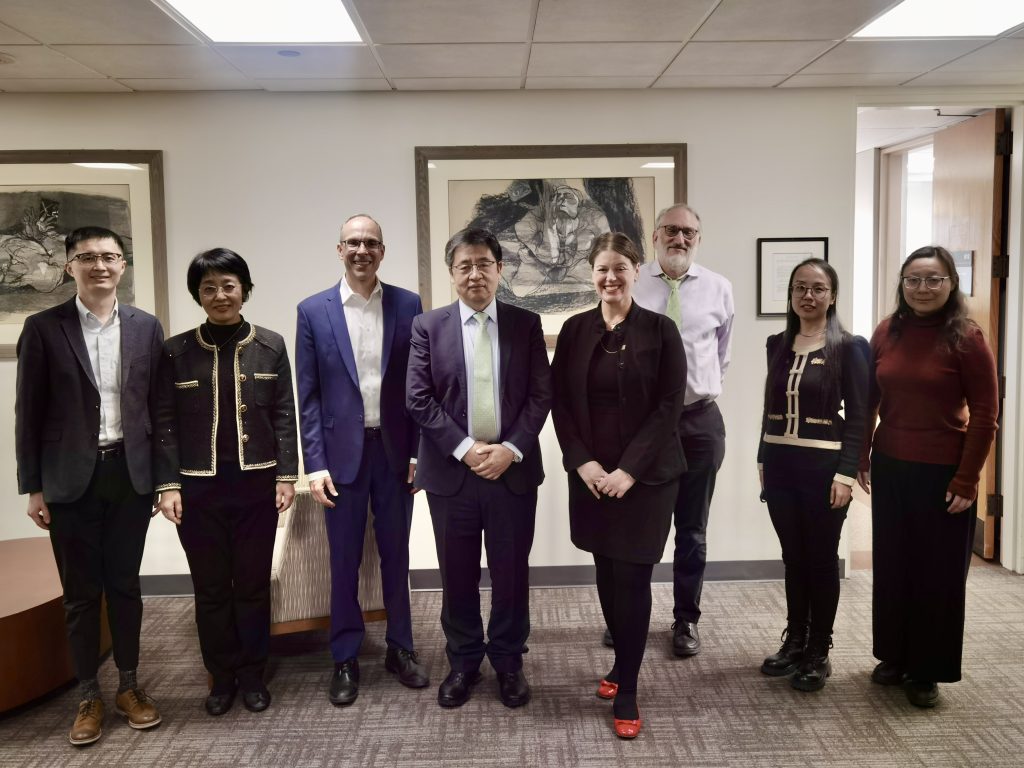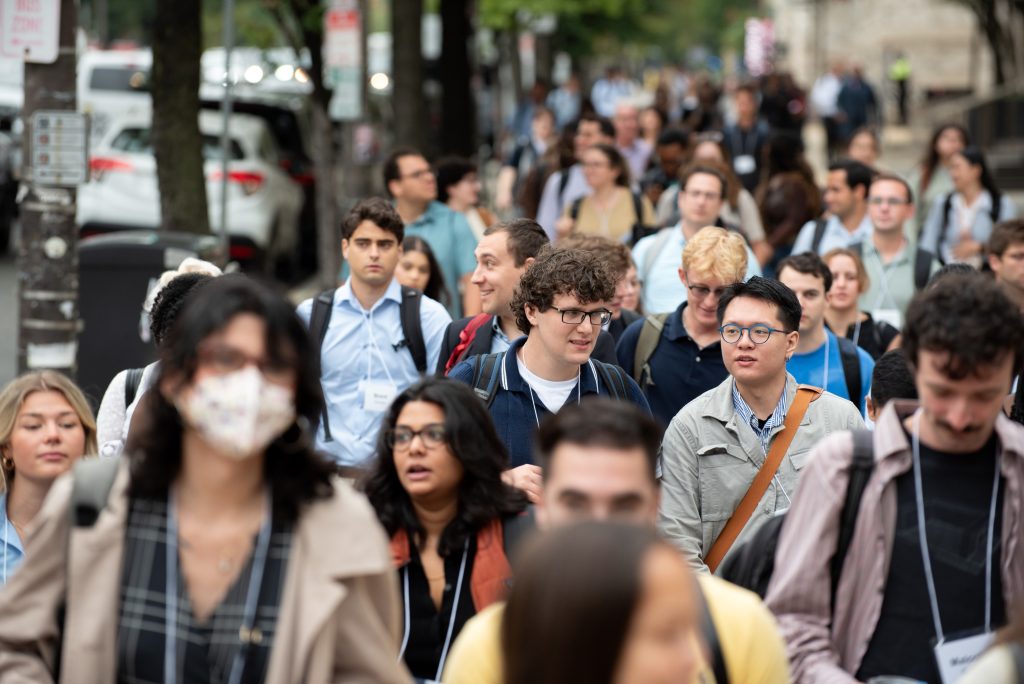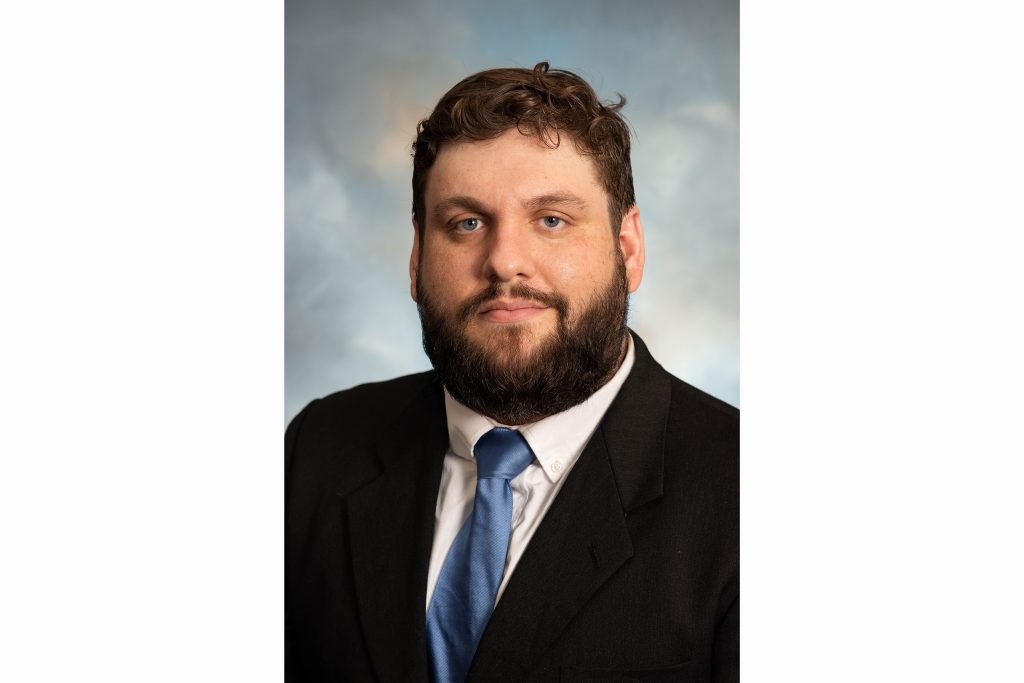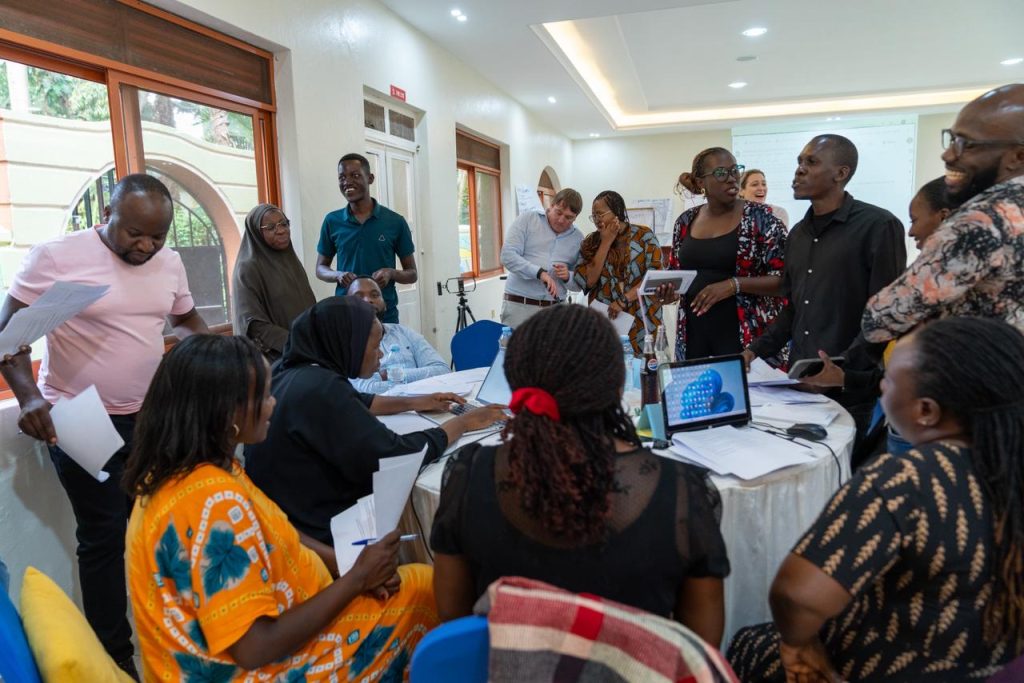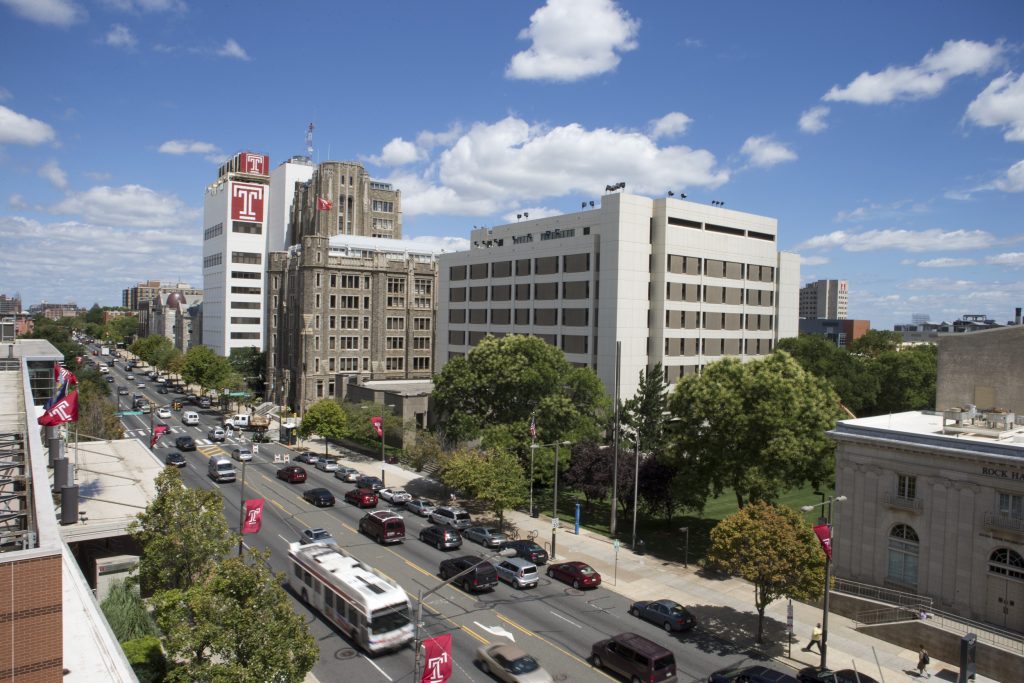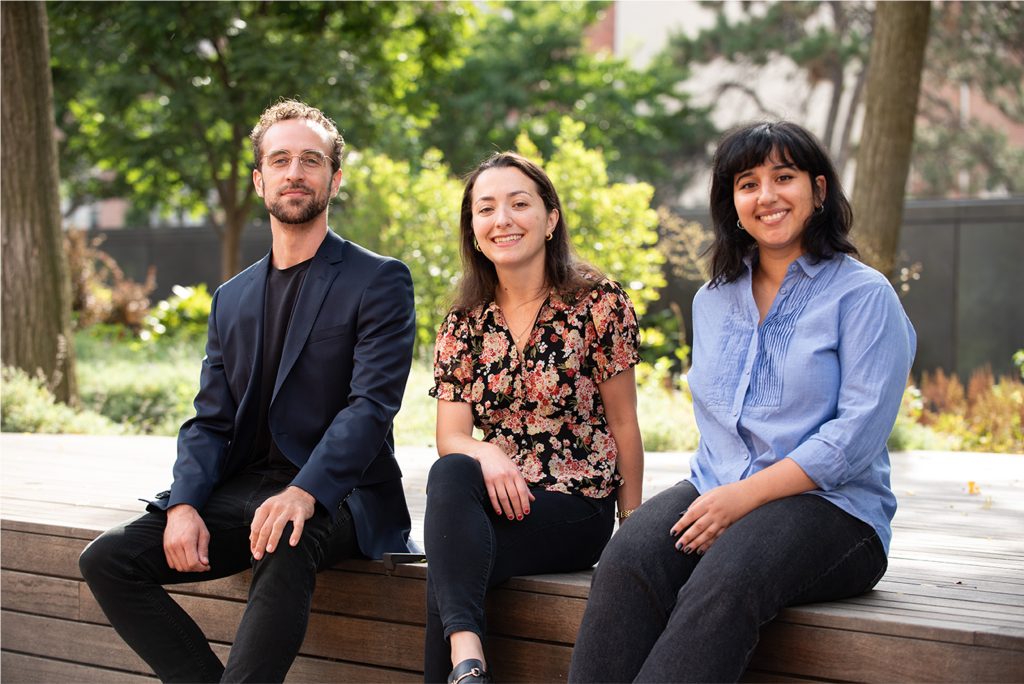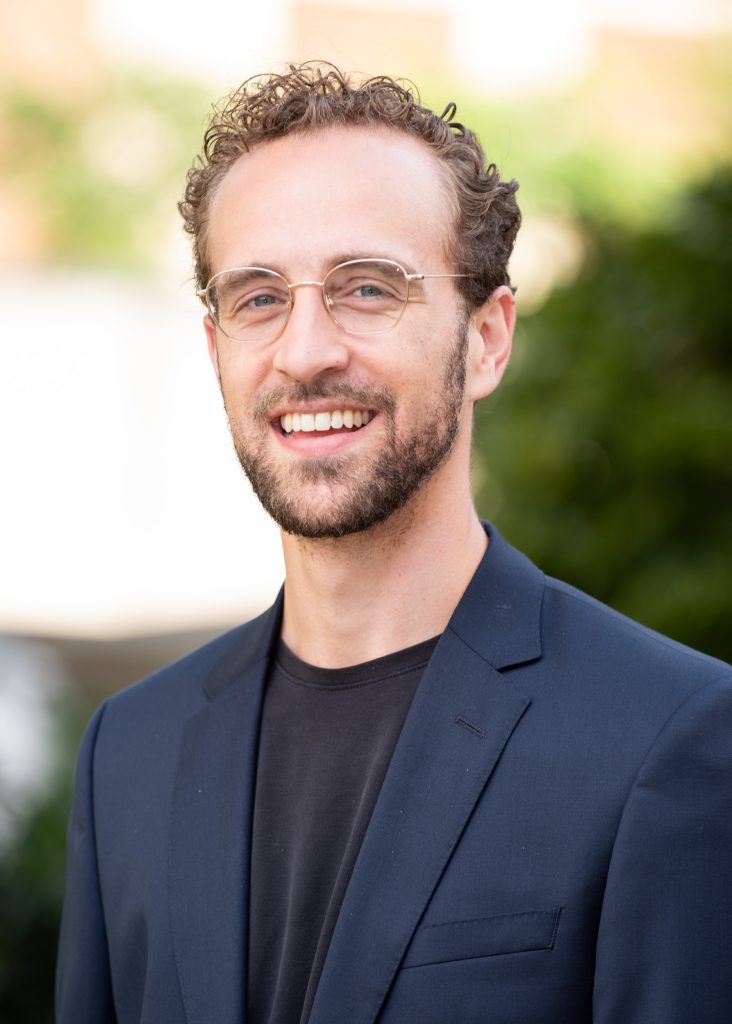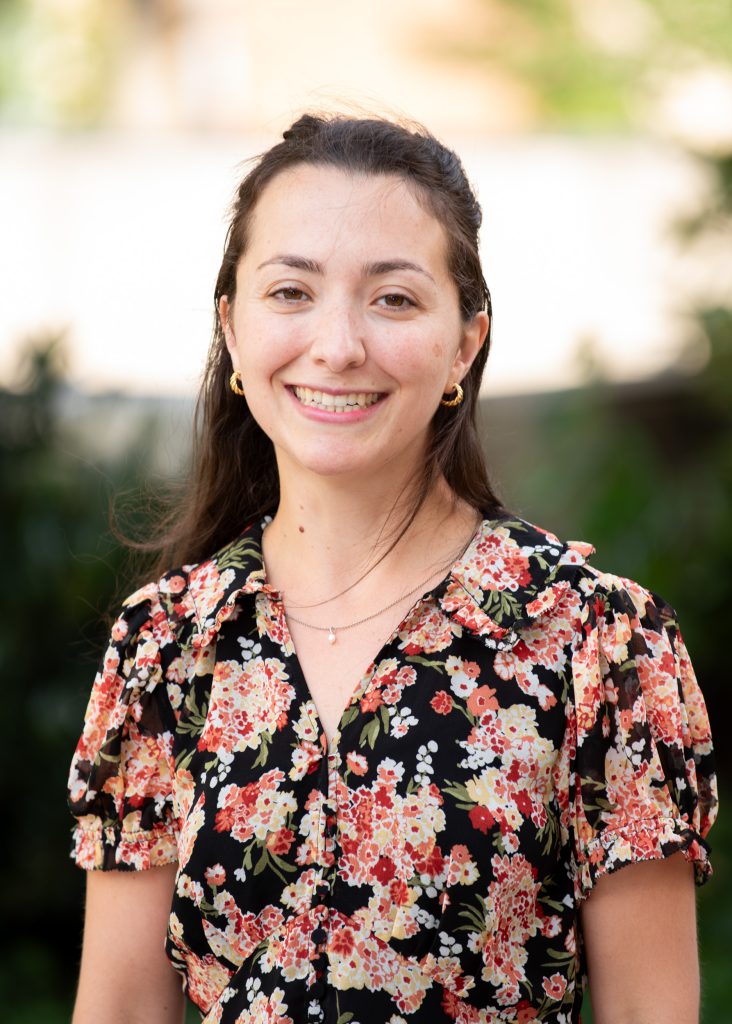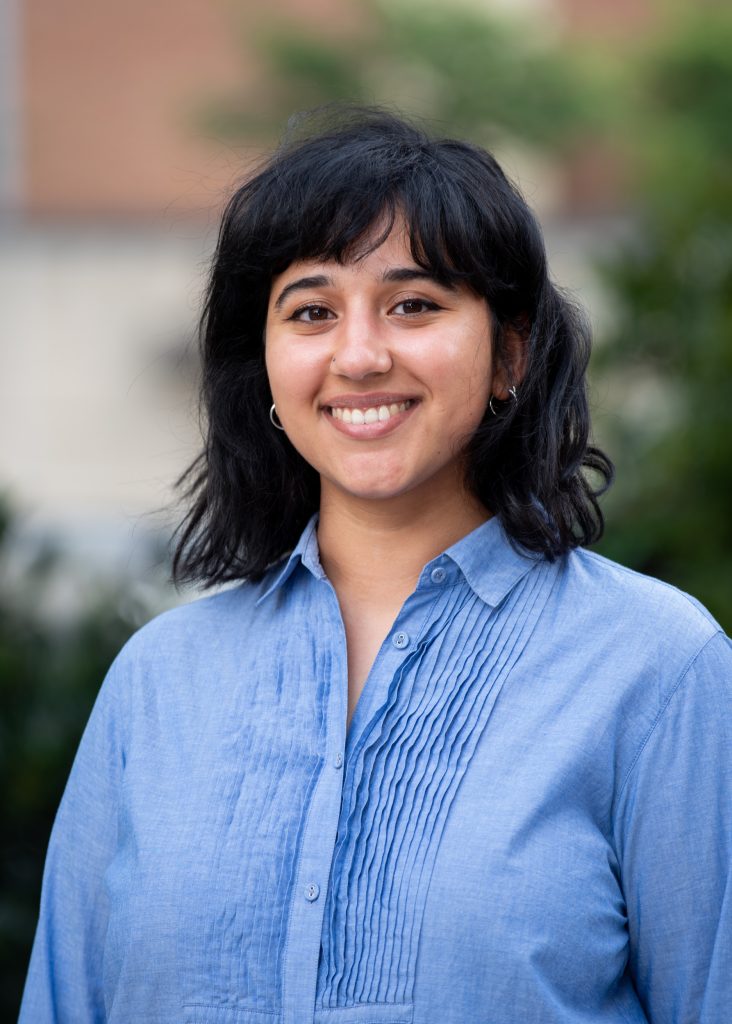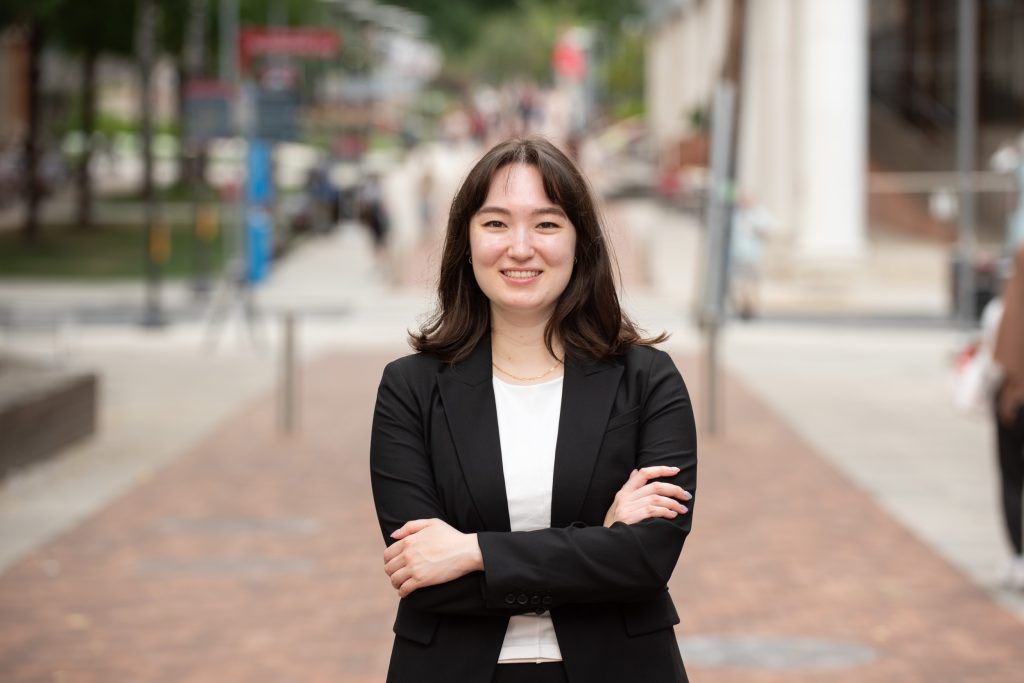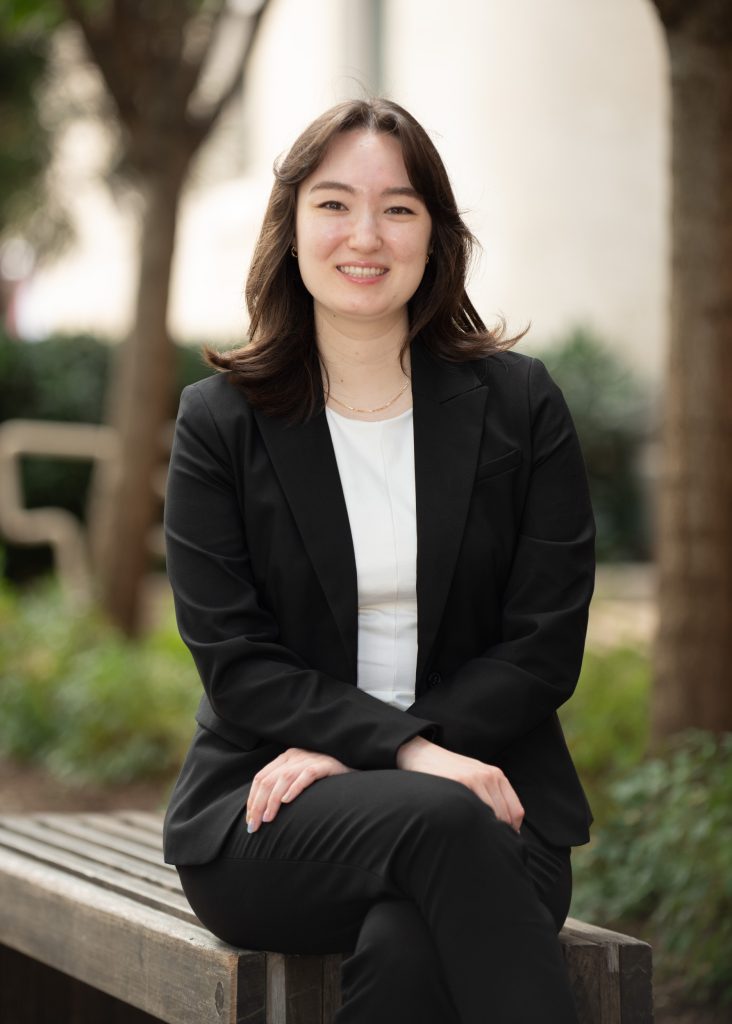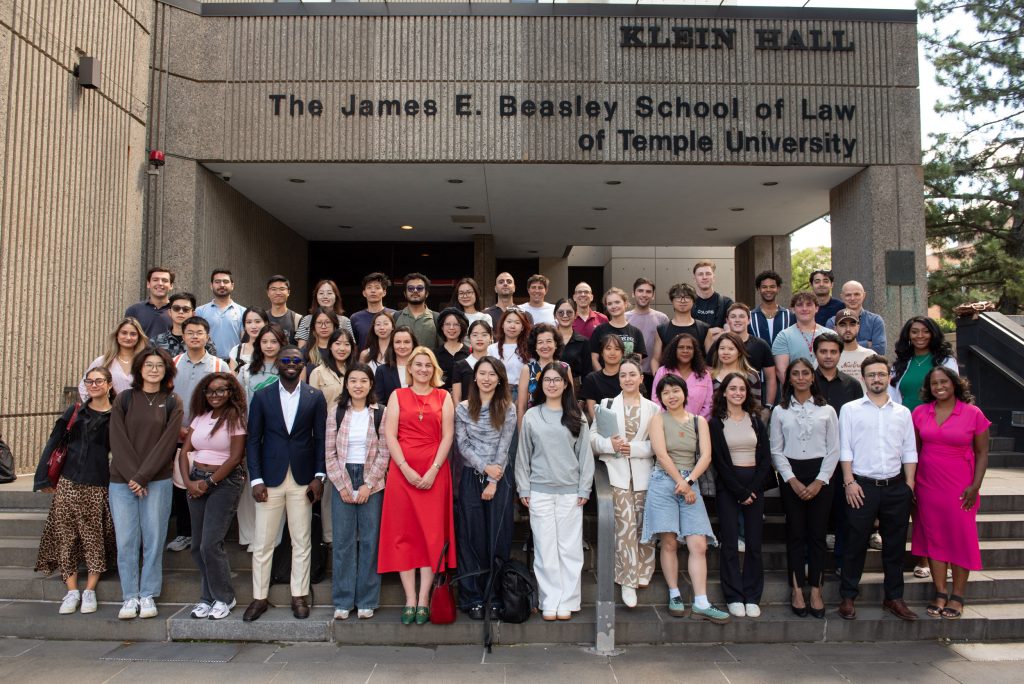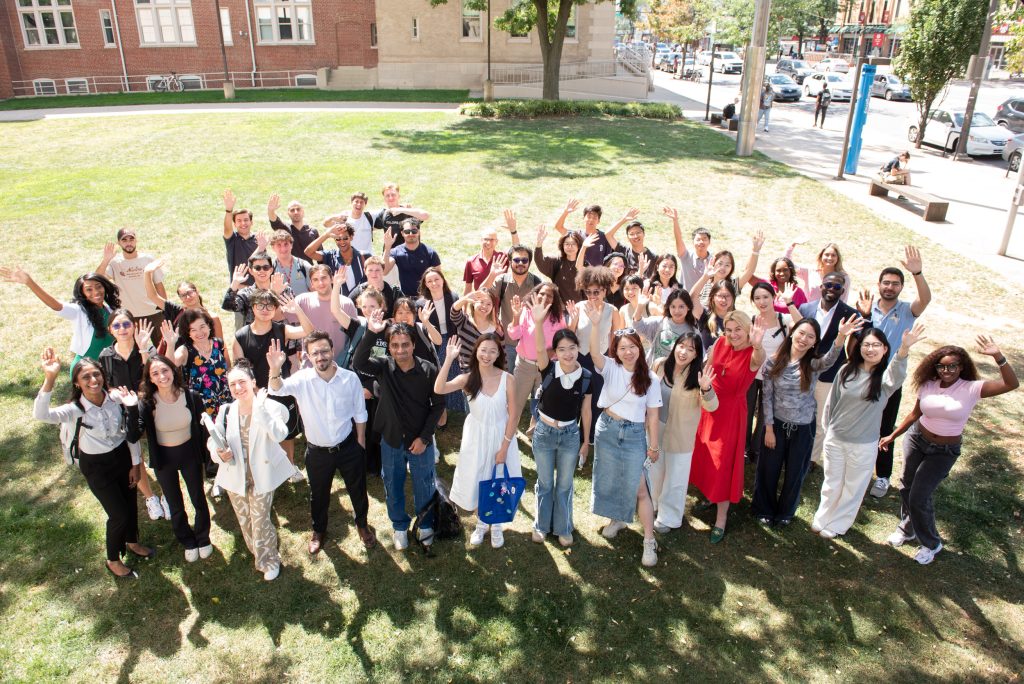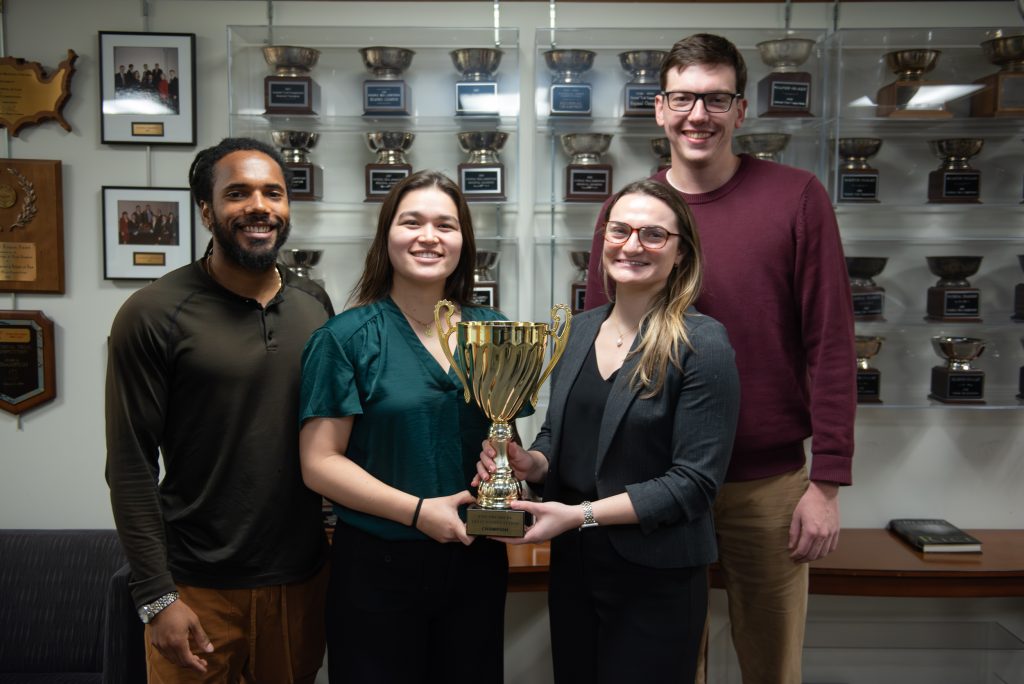
Temple Law’s Rosner National Trial Team has won the 2025 Premiere Mock Trial Competition, hosted by Drexel Kline School of Law, marking the second consecutive year that Temple has claimed the championship.
This year’s winning squad—2Ls Justin Hill, Jennifer Levito, Katie Chun, and Collin Petersen—was coached by Professor and Director of Advocacy Programs Jules Epstein, Christopher Moore LAW ‘23, and Nicholas Guth LAW ‘20.
“I could not have asked for better coaches, teammates and mentors through this process. The opportunity to bond through preparing and competing the way we did has been a really special experience,” said Justin Hill, who was named the Premiere Competition’s Best Advocate.
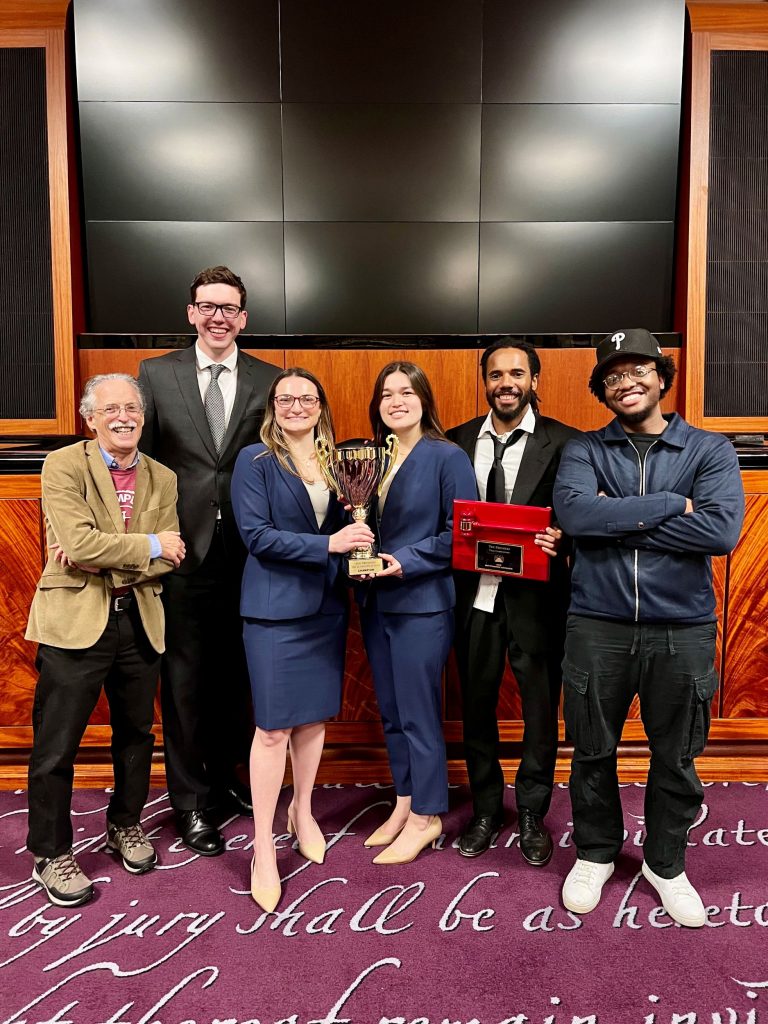
The Premiere Mock Trial Competition is among the first opportunities for law students to test their trial advocacy skills. By rule, entrants are limited to those who have not competed in other external trial competitions, pitting law school advocates against one another in their first interscholastic competition.
“Competing at the Premiere was an incredible experience,” said Collin Petersen. “I’m deeply grateful for the time and effort my teammates and coaches dedicated over the past two months, and I’m immensely proud to have been part of this team.”
All trials were judged by the coaches of participating teams, excluding the two teams in argument, to ensure fairness and impartial feedback. Each team competes in four trials, two on each side, in which the advocates and witnesses rotate roles.
“I want to be a public defender after graduation, and I think competing on Temple’s trial team is one of the best ways to prepare for that,” said Katie Chun.
Jennifer Levito called competing in the Premiere an “unforgettable experience.”
“It was an opportunity to test our advocacy skills against some of the best, learn from brilliant coaches, and represent Temple with pride. Every moment, we trusted ourselves because we had the support of one another,” Levito said. “It truly takes a village, and I am so grateful for mine!”
Now with back-to-back victories under their belt, the Temple Rosner National Trial Team again proves that with rigorous preparation, deep mentorship, and a culture of mutual support, our students are empowered to step into the courtroom, whether in competition or the careers that follow.

